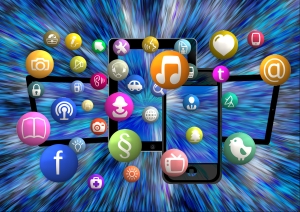A high school senior recently contacted me for insight regarding his thesis on Teens and Social Media. Here are my answers to several fundamental questions on this topic:
What causes Internet addiction?
First of all, it is important to understand what an addiction is. It is the psychological and physical inability to stop a repetitive behavior such as cigarette smoking, overeating, drug or alcohol consumption, or use of the internet. In the case of teenagers, participation in social media is a cultural mandate. Where I think most teens get hooked is through approval seeking from their peers. The number of likes you get or other feedback becomes a currency of being valued by others.
One of the great problems of human consciousness is seeking approval from outside of ourselves rather than from within ourselves.
In the absence of a secure sense of identity and self-worth, teens are extremely vulnerable to the perceptions of their peers.
Why do you think teens are addicted to social media?
Social pressure is enormous for teens and plays a major role in self-perception. In this particular social moment, this drama is being played out in the world of social media. You’re either in the game, or you are perceived to be lame. Hiding behind anonymous accounts gives some teens a sense of freedom and power to say things they would never have the guts to say face to face.
Teen reputations are made and broken in cyberspace and what has been done can’t be undone.
For those on the top of the social hierarchy, this gives a false sense of popularity and self-worth. For those who are bullied, ignored, or simply not perceived to be cool enough, it can be a living hell. In the absence of monitoring and guidance from parents and teachers, it’s a free- for-all. The pressure to participate has become a social norm and is therefore non-negotiable. Once you are in this game, you learn to care too much and give too much value to the opinions of others, which causes you to lose any sense of personal autonomy and power you had. All is in the hands of others and you end up not simply being who you are, but playing to an audience who gets to decide whether you matter or not. It’s a very sad state of affairs.
Do you recommend any websites/articles/books about Internet addiction?
Yes. Watch a 60 Minutes segment entitled “Screen Time” which aired on 12/9/2018 and read the book, American Girls: Social Media and the Secret Lives of Teenagers by Nancy Jo Sales.
What is the solution to internet addiction?
There is no easy solution to any kind of addiction. Every form of addition takes hold through the same process. Someone wants, and believes they absolutely must have, whatever it is that that particular path of addiction appears to offer – an ongoing source of a high, validation, or the acquisition of a material thing or status associated with a particular job or relationship. Unfortunately, the addict’s appetite is never sated. If the addict has 500 “friends” on Facebook and someone else has 732, the addict won’t be satisfied until acquiring more friends. Then someone else has more and so on and so on. Once an addict can’t do without their addiction, they are powerless to break free of it.
There are treatment programs and medications that can help, but nothing will break an addict free until they undergo a change of mind.
This often involves transferring their addiction to something else. However, in order for the addict to let loose his or her grasp of that which they are addicted to, they will have to come to value something more. Ideally, they will choose sobriety, self-worth, or some other self-empowering path. However, many will go from one addiction to another for one reason only – the underlying condition that drove them into their addiction has not been resolved. Typically, that condition is a mostly unconscious collection of thoughts, beliefs, and feelings whereby the addict perceives him or herself as not good enough – not a worthy human being in their own right. This fundamental fear or belief makes these people ripe targets for addictive substances and behaviors. Many industries such as fashion, weight loss, cosmetics, and the latest ‘must-haves’ in popular products all feed off of people’s insecurities, which in turn are the driving force behind most addictions.
If I could help teens to avoid internet addictions, here is what I would want them to know:
- Your relationship with yourself is probably not very solid yet, so you have to be careful not to fall f
 or anything that suggests that you are less than fine just the way you are.
or anything that suggests that you are less than fine just the way you are. - Your value cannot be measured by internet ‘likes.’
- Your coolness cannot be proven by either publicly or privately posting sexy photos of yourself. Anyone who asks you to do so is not asking out of love and affection for you, but rather in an effort to score points with ‘friends.’ Don’t give yourself away so cheaply.
- If you really care about how many ‘likes’ you have, you are an internet addict and need to get busy working on your sense of self-worth separate and apart from what other people think about you.
- The price of popularity is often valuing other people’s opinions of you more than being true to yourself.
- Most of your current real and internet friends will come and go out of your life, but you will live inside yourself every breath for the rest of your life. Make friends with yourself. Focus on appreciating and developing who you are and creating a peaceful and happy inner mental and emotional environment.
- Be discerning. Think for yourself. Don’t let the marketing campaigns of big companies or the internet movers and shakers define you based on whether or not you follow them. Become your own best friend. Overcome the desire to reject any part of yourself as unworthy. You exist just the way you are. Don’t knock it till you’ve tried it. Have the courage to be who you are. Nothing will ever make you more cool than you already are. Take up residence in yourself without apology. Take dominion over your opinion of yourself.
The only way to break free of an addiction is to reprogram the mind that is caught up in the illusion that the addiction gives you something you need.






